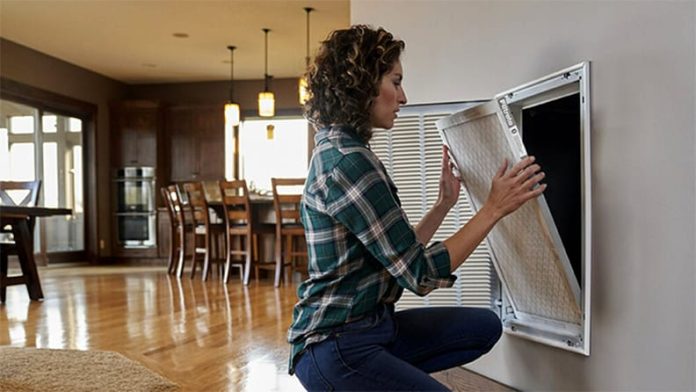Air filters play a crucial role in maintaining indoor air quality, especially in homes where we spend a significant amount of our time. They help remove harmful particles, allergens, and pollutants from the air, ensuring a healthier environment for occupants. However, not all air filters are created equal, and there are several factors to consider when choosing and maintaining them. In this article, we’ll discuss five important things to know about air filters at home.
Types of Air Filters:
There are various types of air filters available on the market, each with its own filtration capabilities and efficiency levels. The most common types include:
- Fiberglass Filters: These are inexpensive and disposable filters that are primarily designed to protect your HVAC system from large particles. However, they offer minimal filtration of smaller particles and allergens.
- Pleated Filters: These filters have a larger surface area than fiberglass filters, allowing them to capture more particles effectively. They are available in various MERV (Minimum Efficiency Reporting Value) ratings, indicating their efficiency in removing airborne contaminants.
- High-Efficiency Particulate Air (HEPA) Filters: HEPA filters are highly efficient at capturing particles as small as 0.3 microns, including dust, pollen, mold spores, and pet dander. They are often used in environments where air quality is crucial, such as hospitals and laboratories.
- Electrostatic Filters: These filters use an electrostatic charge to attract and trap particles as air passes through them. They may be disposed of or washed for future use, and they are efficient at catching tiny particles.
It’s essential to choose the right type of air filter based on your specific needs and the quality of your indoor air.
MERV Ratings:
As mentioned earlier, MERV ratings are used to measure the efficiency of air filters in capturing particles of different sizes. The more effectively a filter removes impurities from the air, the higher its MERV rating. However, it’s essential to strike a balance between filtration efficiency and airflow resistance, as filters with higher MERV ratings can restrict airflow, potentially reducing the efficiency of your HVAC system.
For most residential applications, a MERV rating between 8 and 12 is sufficient to capture a wide range of particles without putting too much strain on the HVAC system. However, if you have specific concerns about indoor air quality, such as allergies or asthma, you may consider investing in a higher-rated filter.
Regular Maintenance:
Proper maintenance of air filters is essential to ensure optimal performance and prolong their lifespan. Depending on the type of filter you have, you may need to replace or clean it regularly. Disposable filters typically need to be replaced every 1-3 months, while washable filters can be cleaned and reused according to the manufacturer’s instructions. It’s important to note that different filters cater to specific needs, such as the 16x25x4 air filter, which is designed for certain HVAC systems.
Neglecting filter maintenance can lead to a buildup of dirt and debris, reducing airflow and efficiency while allowing contaminants to circulate freely in your home. Additionally, dirty filters can put strain on your HVAC system, leading to higher energy consumption and potential costly repairs down the line. Make it a habit to check and replace your air filters regularly to maintain healthy indoor air quality.
Considerations for Allergy Sufferers:
If you or your family members suffer from allergies or respiratory issues, choosing the Best Air Filters for Allergies can make a significant difference in your comfort and well-being. HEPA filters are highly recommended for allergy sufferers, as they are capable of capturing a wide range of airborne allergens, including pollen, dust mites, and pet dander.
In addition to selecting the appropriate filter, you may also want to consider investing in an air purifier with additional features such as UV-C light or activated carbon filtration, which can further enhance the removal of allergens and odours from the air. However, it’s essential to consult with a healthcare professional or allergist to determine the most suitable options for your specific needs.
Supplemental Air Cleaning Solutions:
While air filters play a crucial role in improving indoor air quality, they may not be sufficient to address all potential contaminants in your home. Supplemental air cleaning solutions, such as ventilation systems, air purifiers, and humidity control devices, can help provide additional protection against pollutants and allergens.
Ventilation systems, such as exhaust fans and air exchangers, help remove stale air and pollutants from your home while bringing in fresh outdoor air. Air purifiers with advanced filtration technologies can complement the efforts of air filters by targeting specific contaminants and odors, providing comprehensive air cleaning solutions for your home.
Conclusion:
Air filters, including the 16x25x4 air filter, are an essential component of maintaining healthy indoor air quality in your home. By understanding the different types of filters available, considering factors such as MERV ratings and maintenance requirements, and investing in supplemental air cleaning solutions as needed, you can create an atmosphere that is healthier and cleaner for you and your family. Prioritize regular filter maintenance, including the specific 16x25x4 air filter size, and consult with professionals if you have specific concerns about indoor air quality to ensure that your home remains a safe and comfortable place to live.

